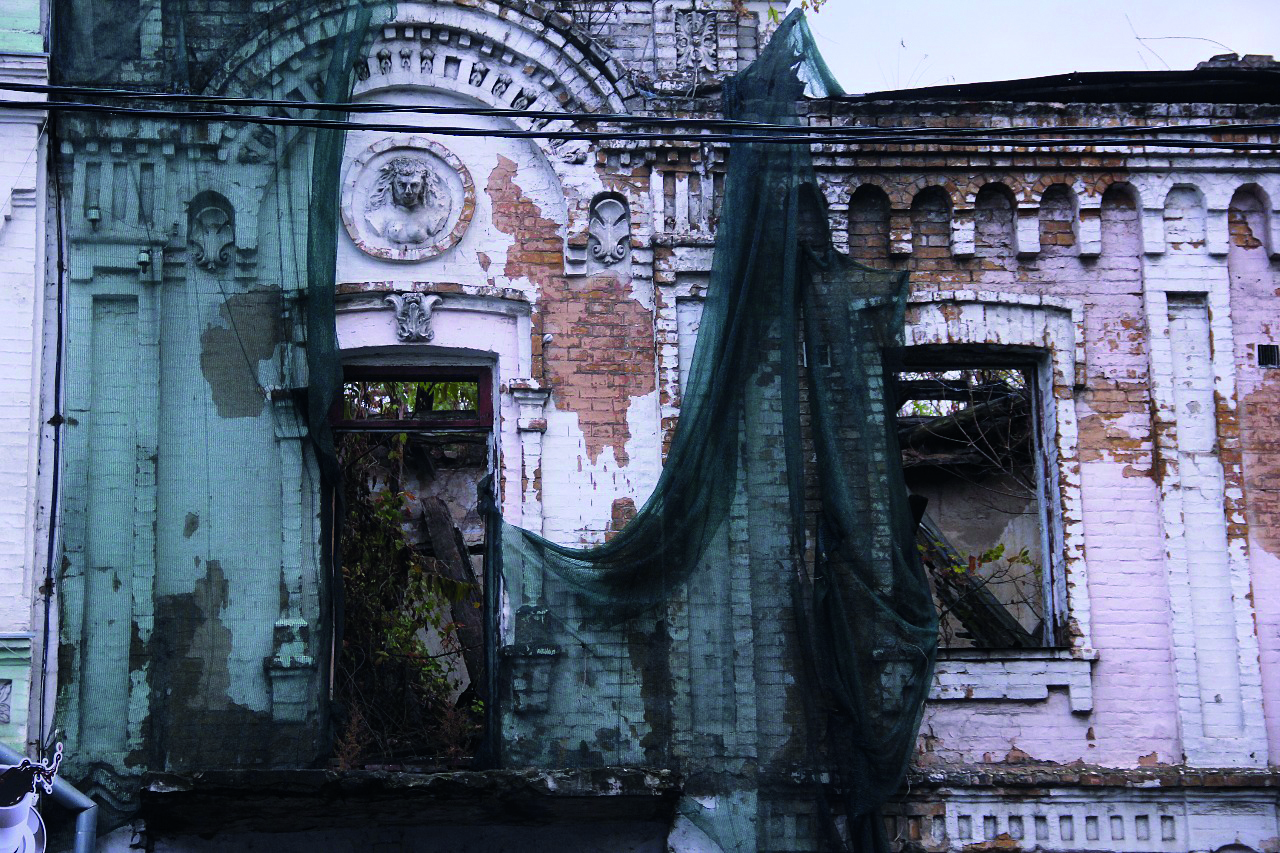New Stage (A New Age of Ukrainian Theatre)

Want to attend Kyiv’s ‘loftiest’ theatre? Head up to the sixth floor of the Dovzhenko Centre, Ukraine’s largest film archive, and explore Stage 6 – a platform for independent theatres and experimental performances. Big space. No curtains. Full audience involvement.
Stage 6 (Scena 6) emerged within the walls of this former motion picture printing shop thanks to the efforts of four inspiring individuals – Oleksiy Ananov, project author and presenter at 112 Ukraine; Yaroslava Kravchenko, Dykiy (Wild) Theatre founder; Serhiy Perekrest, stage director; and Volodymyr Sheiko, director of arts at the British Council.
Launched in early September, Stage 6 made a ‘combat’ debut. Right off the top, it co-hosted GogolFest, Ukraine’s most influential festival. International and local actors, dancers, and musicians showcased their versatile talents to sold-out crowds. Soon after, it became a venue for yet another important event – Taking the Stage, the new British drama mini-festival. The space literally came to life and got a sense of purpose – to bring together people and projects generating creative breakthroughs at an intersection of different genres.
Independent Theatre as Phenomenon
Unlike cinema or literature, theatre responds to historical moments as they happen, in fact it is one of its key features. In the wake of the Euromaidan protests, independent (non-state) theatre became noticeable to rival contemporary art that previously dominated public attention. The reason was simple – theatre was immediately reacting to what was going on in the country and producing up-to-date stuff. “Theatre ought to be first of all socially oriented”, explains Ananov. “Even classics should address crucial issues facing us here and now.”
Relevance comes second, as audiences tend to identify themselves with what unravels on stage. “It should appeal personally, even if it is a Shakespeare’s play,” comments Ananov.
The play Vitalik is a good example. Vitalik is our present-day Hamlet – is a middle-aged man, who moves from Mariupil to Kyiv. He witnesses both Maidan revolutions, in 2004 and in 2014. His personal and professional life is a mess. Confused and tired, he sets off on a journey of self-discovery. “When you watch the play, you realise it refers to 70% of your colleagues. It is about you and me,” says Ananov.
Based on facts, Our Schoolmates tells a story about complicated Polish-Jewish relations in the 20th century. However, it is also about Ilovaisk, Slovyansk, Luhansk; it’s about far right parties and LGBT representatives; and it’s about a misunderstanding between individuals erupting into a national-level conflict.
Smaller Parts of a Large Whole
 Passion is the third component. Sometimes independent theatre hires amateurs who lack skills but act with passion. They chase neither money, nor fame – they reflect their inner selves and communicate with audiences.
Passion is the third component. Sometimes independent theatre hires amateurs who lack skills but act with passion. They chase neither money, nor fame – they reflect their inner selves and communicate with audiences.
Innovation encompasses the fourth ingredient. As independent theatre often can’t afford advanced technical equipment, directors have to invent new approaches to staging – both effective and impressive.
I would add a fifth aspect typical of independent theatre – a democratic atmosphere and a focus on thought-provoking or even scandalous plays, like Tom at the Farm.
“Academic Ivan Franko or Lesia Ukrainka theatres have long formed their audiences from generation to generation. Our audiences – mainly 25- to 35-year olds – come from diverse backgrounds. They do not have a vast theatre experience, but they do soul search. We want to build a community of individuals who will contemplate what they watch here and share their thoughts with others,” says Ananov.
Multi-Genre Art Cluster
Stage 6 boasts a large transformer-stage, 300-seat hall, smaller hall, rehearsal rooms, and lobby, with some facilities still under renovation. The platform will also host a choreography workshop and music corner, and be part of a big cultural cluster based on the Dovzhenko Centre, accommodating the Plivka art space, Uho music agency, Black Box media art school, a photo school, and bookstore. The Cinema Museum and Multimedia library will be launched in future.
Currently, Stage 6 cooperates with Dykiy Theatre and Serhiy Perekrest, as well as the Theatre Union of Artists, Writers, Aсtors, and Musicians. “We have just started. We would like to partner with other independent Kyiv-based groups like Misanthrope, Teatr Pereselentsya (Theatre of Displaced People), and Theatre Practicum, as well as exciting projects in Kharkiv and Lviv,” Ananov explains.
Above all, however, Stage 6 is establishing strong relationships between audiences and performers to make true theatre happen.
Check out these upcoming performances at Stage 6
For Love (performance) 18 January
Joy Division (concert performance) 19 January
Tom at the Farm (play) 22 January
Turkestan–Siberian Railway (musical film-performance) 25 January
Bread (musical film-performance) 26 January
Kill (toxic thriller) 27 January
Our Schoolmates (play) 28 January, 25 February
Oxygen (play) 31 January, 14 February
Viy2.0 10 February
Transformation Coefficient (contemporary dance) 5 March
Stage 6
Dovzhenko Centre (Vasylkivska 1)
FB scene6
“Theatre ought to be first of all socially oriented”











